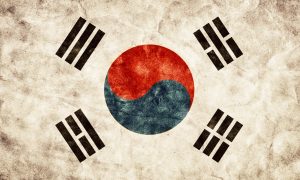South Korea’s rise to the world’s 10th largest economy in 2022, along with its vibrant democracy and social transformation, especially in the past two decades, seems to have charmed the world to fall in love with everything Korean: from technology to Korean pop culture, including K-pop, K-drama, and more. Some big Korean companies have become global brands, especially Samsung and Hyundai, now the world’s No. 1 memory chip maker and South Korea’s largest auto manufacturer, respectively. The global phenomenon of BTS, the biggest selling music brand in the world in 2021, perhaps epitomizes a more ambitious South Korea, shaping global pop culture.
Yet, the Korean people seem to be conspicuously unhappy. According to the United Nations’ World Happiness Report 2022, South Korea ranked 59th among 146 countries in the world, scoring 5.935 out of a ratings score of 10.
South Korea has the highest suicide rate and the lowest fertility rate among the 38 OECD member nations. The number of suicides in 2021 rose to 26 per 100,000 from 25.7 in the previous year. And the national fertility rate further fell to just 0.78 in 2022 from 0.81 in 2021, making South Korea the only nation with a fertility rate below 1.0 in contrast to an average overall fertility rate of 1.59 among OECD nations as of 2020.
Many young Koreans frequently cry out online: “Isaengmang,” an abbreviation of a Korean phrase literally meaning, “This life is ruined.” Why?
The biggest issue that raises public resentment, according to a 2021 survey, is the immorality and corruption of politics and political parties. 58.2 percent of respondents felt chronic resentment in 2021, up from 47.3 percent in 2020. What angers Koreans most is the chronic abuse of power by political elites and other rich and powerful people, causing misery for the vulnerable.
The latest example of the elite’s abuse of power is the so-called Chung Sun-sin incident, which raised public resentment. President Yoon Seok-youl appointed former prosecutor-turned-lawyer Chung Sun-sin as head of the National Office of Investigation, with more than 30,000 police investigators. However, Chung abruptly resigned after 28 hours amid mounting public uproar over his son’s bullying in school.
Chung’s son had apparently verbally abused a classmate, who had shared the same dormitory, over a period of eight months. As a result, the victim attempted suicide.
Public anger exploded over South Korea’s unfair system after revelations that Chung’s son had miraculously entered Seoul National University, the most prestigious university in the country, in 2020. In stark contrast, the victim stopped studying due to severe trauma.
More tellingly, Chung was found to have stymied disciplinary action against his son, even to the extent of getting the school to delete records of his son’s bullying and violence just before graduation. Chung also exploited the law to delay any action for a full year by pursuing lawsuits all the way to the Supreme Court. In this process, Chung used his status as senior prosecutor and top legal expert with strong personal connections within the legal community and beyond.
The Korean people are sick of the systematic double standards and abuse of power by political elites in the unequal, class-based Korean society. There is a strong sense of deja vu following the previous administration’s controversial scandal centered on former Minister of Justice Cho Kuk, involving academic fraud to secure his daughter’s admission to university and medical school.
In this respect, Chung’s appointment, albeit withdrawn, is an unwanted reminder of Yoon’s never-ending appointment fiascos. Yoon is seen as making biased personnel appointments by installing friends, especially former prosecutors, in key governmental positions. In so doing, the president is breaking his promise to return fairness and common sense to Korean democracy as the public demands.
As former prosecutor general turned president, Yoon’s appointment scandals have also exposed the chaotic boss politics practiced by both the conservative governing People Power Party (PPP) and the leftist main opposition Democratic Party (DP), which are focused on their own vested interests in South Korea’s winner-take-all political system.
Yoon’s PPP, for example, suddenly changed its rules for selecting the party’s new chairman ahead of its election primary, ignoring due procedures and transparency, which led to the withdrawal of a strong candidate. Instead, Rep. Kim Gi-hyeon, a four-term Yoon loyalist, was elected new leader of the PPP on Wednesday, with a majority of 52.93 percent, amid allegations of improper intervention from the presidential office.
The main opposition DP is no less serious in its boss politics. Scandal-ridden leader Lee Jae-myung has used his control of the main opposition DP as his “bulletproof vest” to protect him from legal risk, as his party can block any attempt to arrest him. Yet pundits say Lee’s control is in turmoil, with ongoing factional strife after Lee barely escaped arrest by the prosecution for corruption and bribery allegations stemming from his days as Seongnam governor. Lee is under increasing pressure following the death of his former chief of staff who, in his suicide note, urged Lee to leave politics.
The detrimental effect of messy boss politics within both Yoon’s governing PPP and Lee’s main opposition DP is nowhere more apparent than in the economic stress felt by Koreans. South Korea’s economic “misery index” reached an all-time high of 9.2 percent last July, with high inflation and high joblessness amid the lingering effects of the COVID-19 pandemic.
More than one in five young Korean adults aged between 19 and 39 are heavily in debt, with their debt-to-income ratio exceeding 300 percent as of 2021, according to a recent study by the Korea Institute for Health and Social Affairs. It is no surprise that Koreans, especially young Koreans, regard their life to be in ruins – isaengmang – with no hope of employment and marriage, let alone having a child in the future.
Ultimately, Yoon faces multiple challenges, especially the mounting pressure to rejuvenate the sagging economy for the people’s livelihood by returning South Korean democracy to fair and just politics.

































